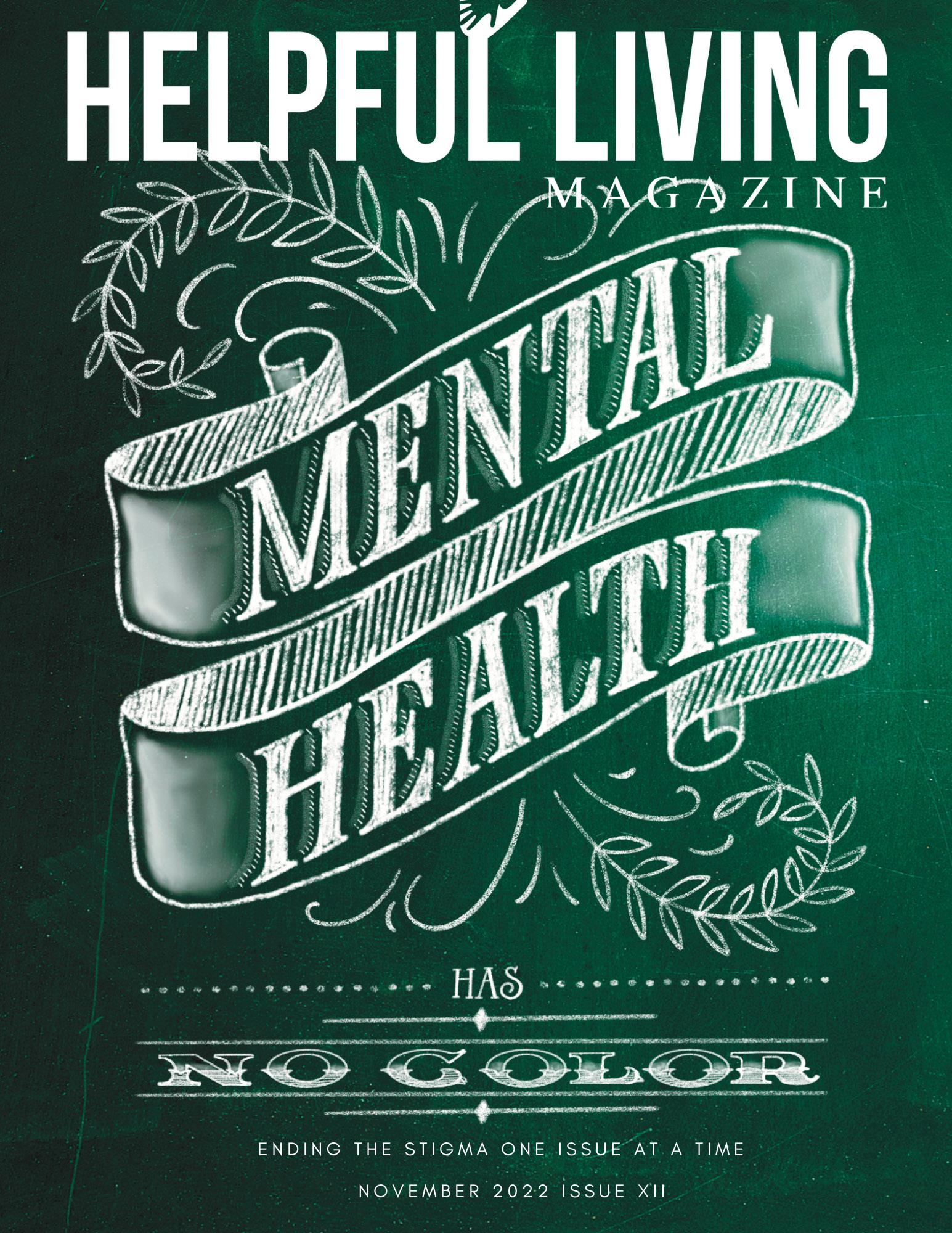
Copyright © 2022 Helpful Living Magazine
No portions of the
All articles have been
To
any form without contacting Founder Jamie Rockymore-Bess.
distributed
Jamie Rockymore-Bess.
therapy or any mental health services. Some of the articles and
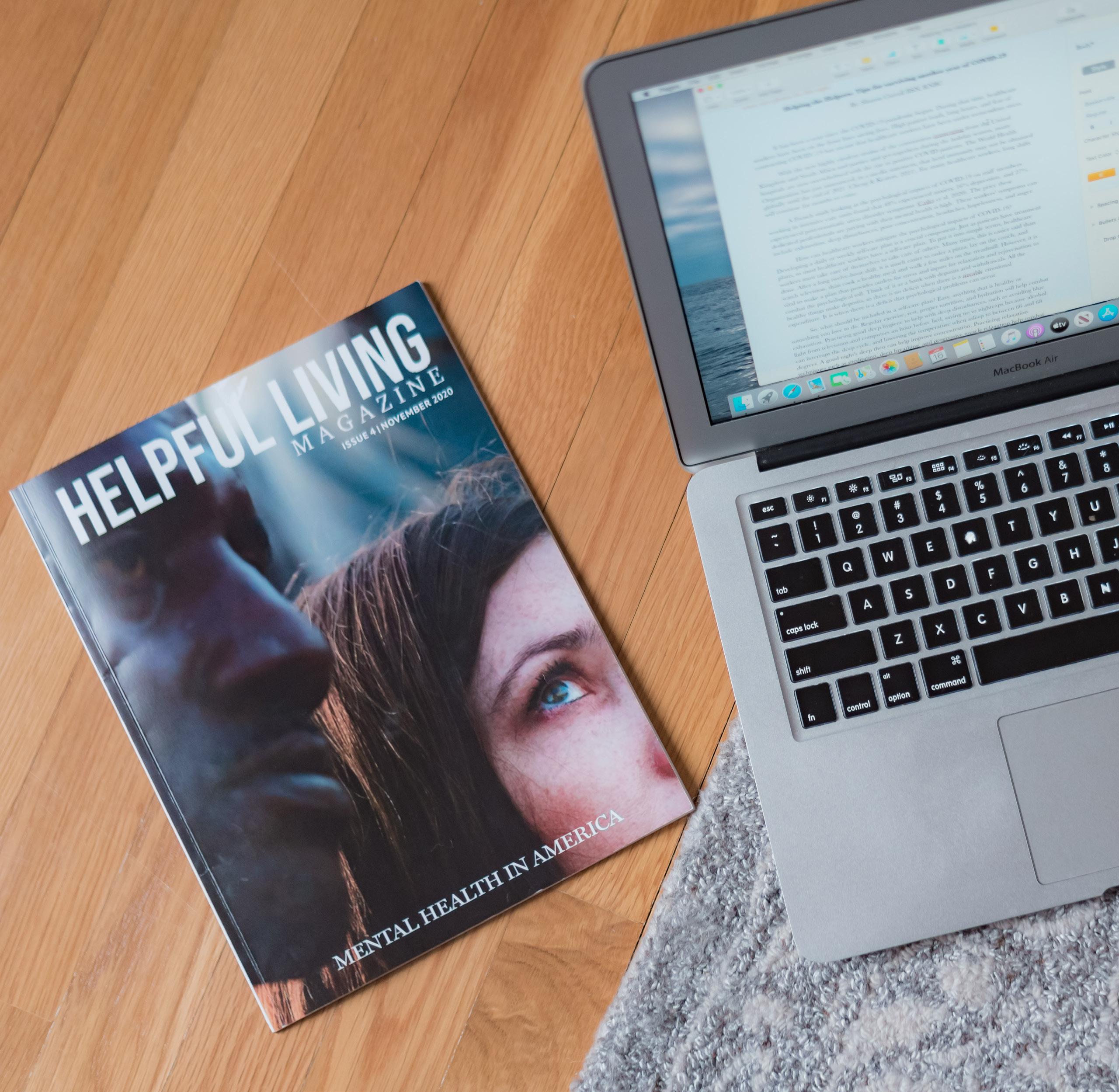
Disclaimer:
may be
you or someone you know has a mental health emergency please call 911 or go to your local emergency room.
publication can be transmitted, reproduced, or
in
reviewed and approved by Founder
contribute or to be interviewed contact info@helpfullivingmag.com
Helpful Living Magazine does not take the place of
stories
triggering. If
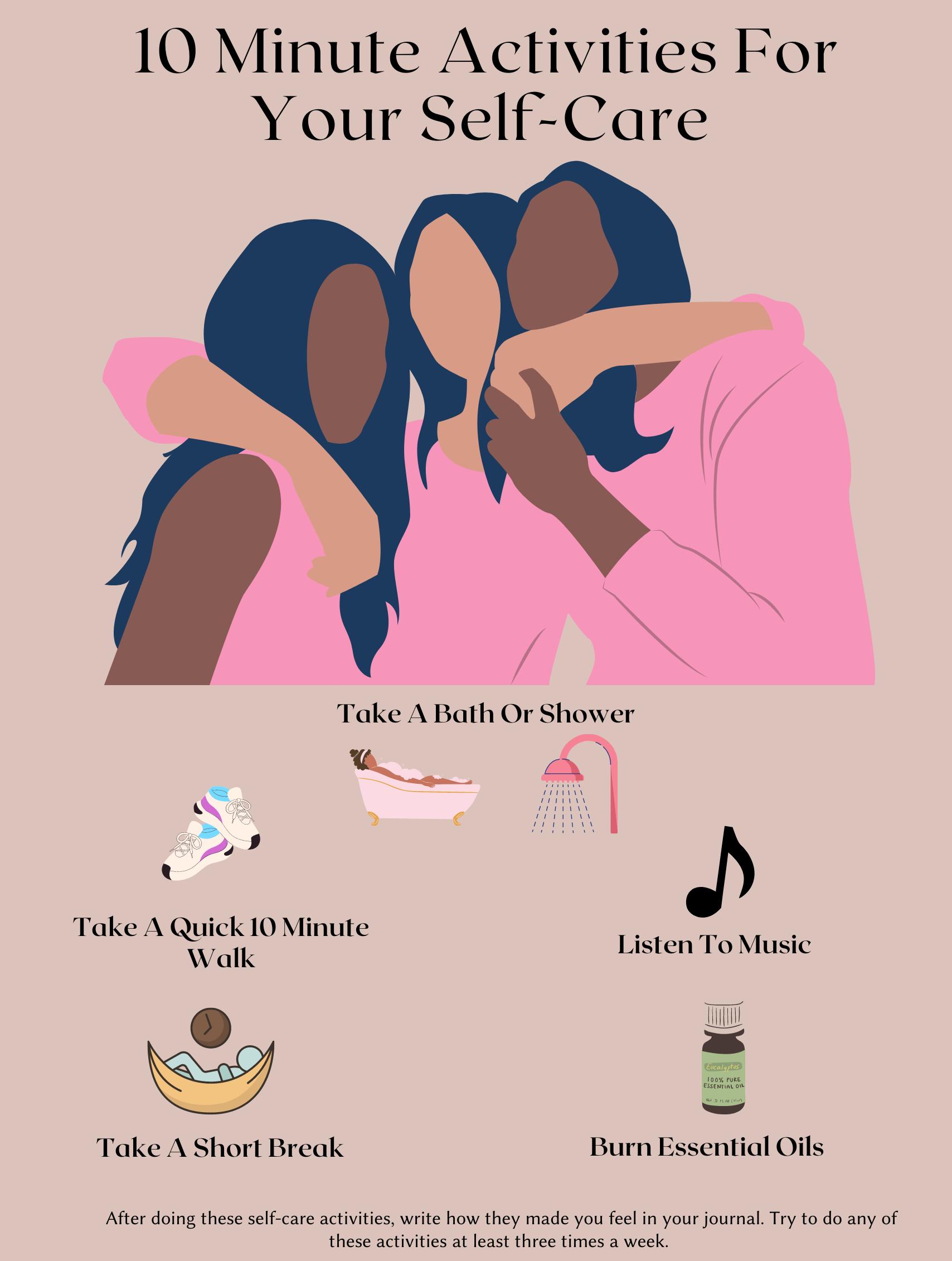


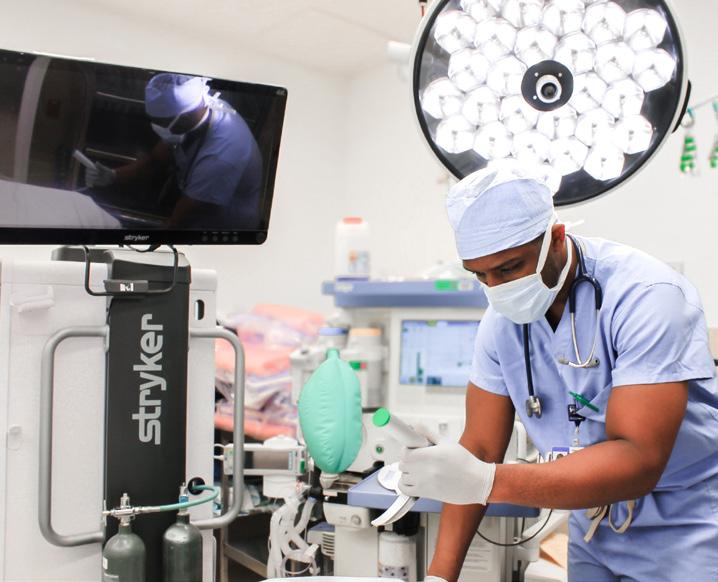
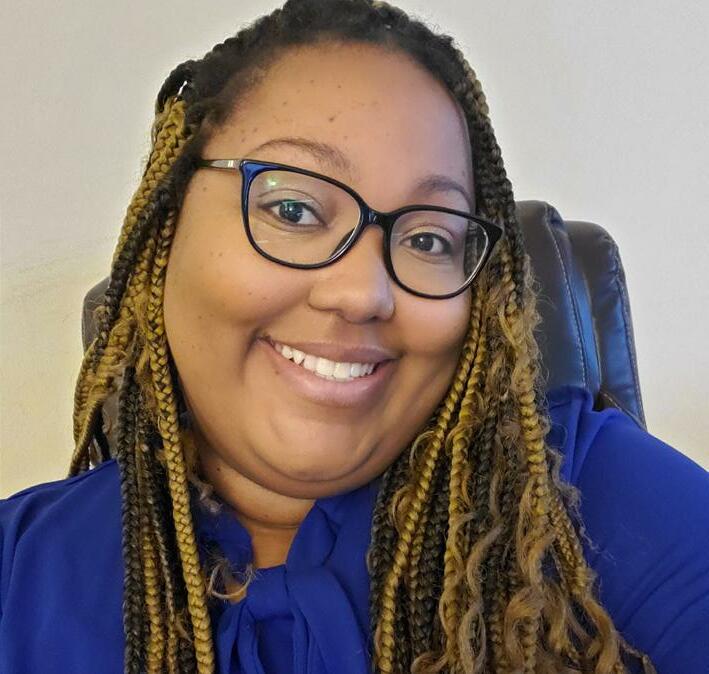

Contents 6 Letter From The Founder 7 The Artist On The Cover 16Coaching or Counseling You Choose 8 5 Reasons We Should Talk About Mental Health 19My Journey With Depression 10 A Letter To My Father 21Journal Your Way to Calm & Clarity 11 Adulting with Our Parents with Carrie Holland-Lee 23Learning About Our Overall Health with Dr. Singleton 14 Balance and Boundaries in the Holiday Season 26How To Treat Adjustment Disorder 27The One Prescription You Can Fill Without a Pharmacy 06 Letter From The Founder 08 5 Reasons We Should Talk About Mental Health 23 Learning About Our Overall Health with Dr. Singleton 11 Adulting with Our Parents with Carrie Holland-Lee 26 How To Treat Adjustment Disorder
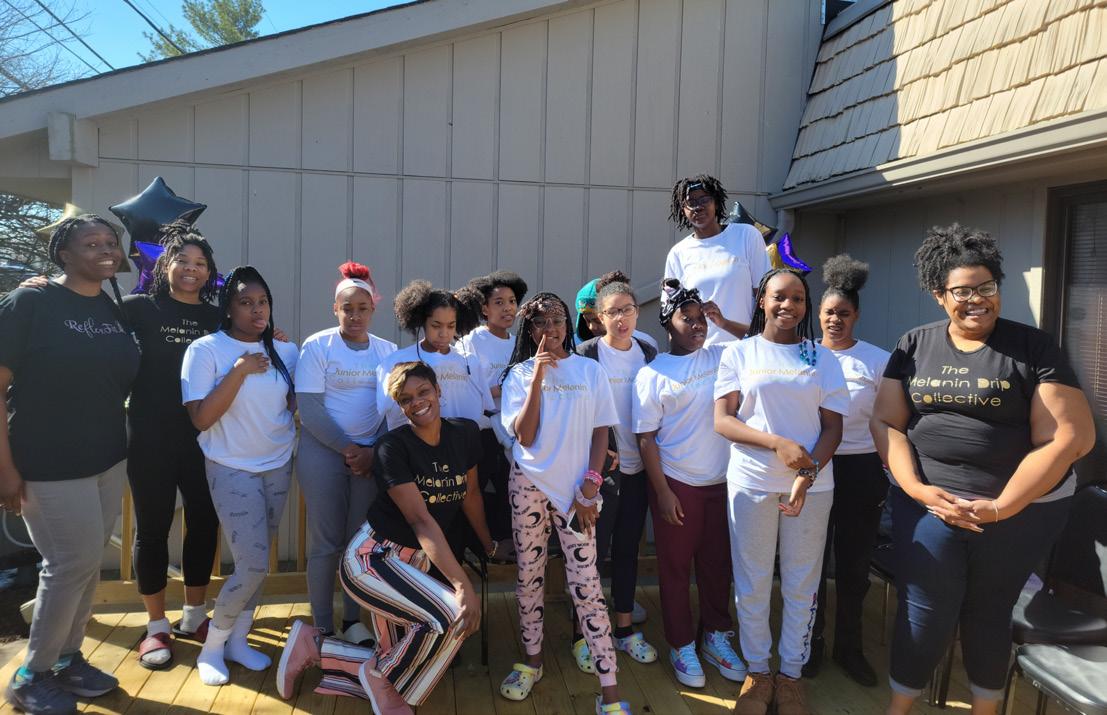

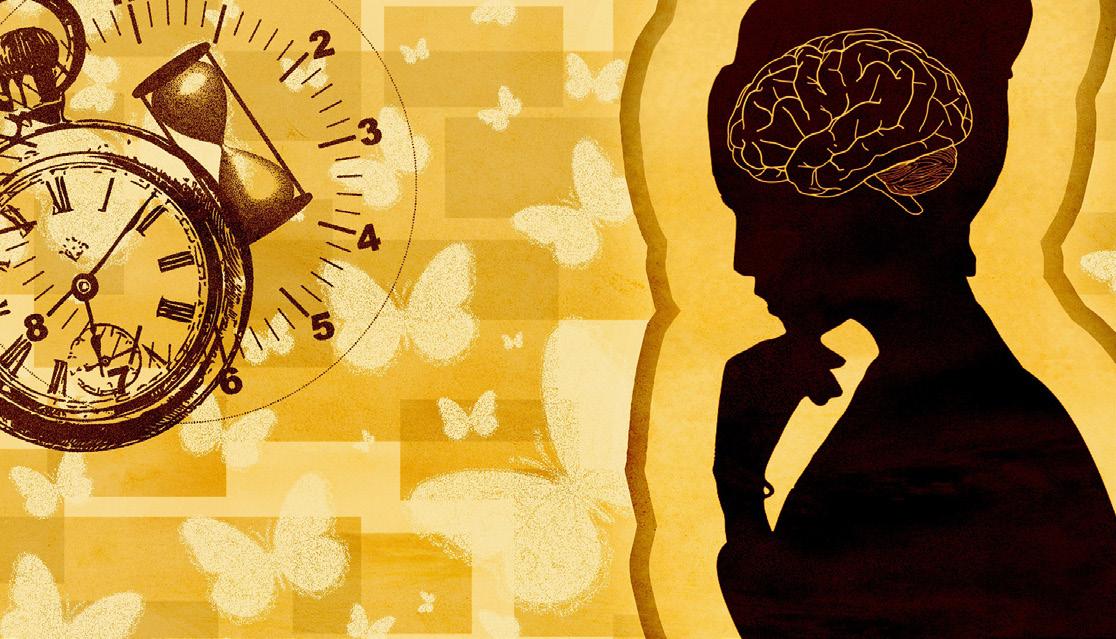
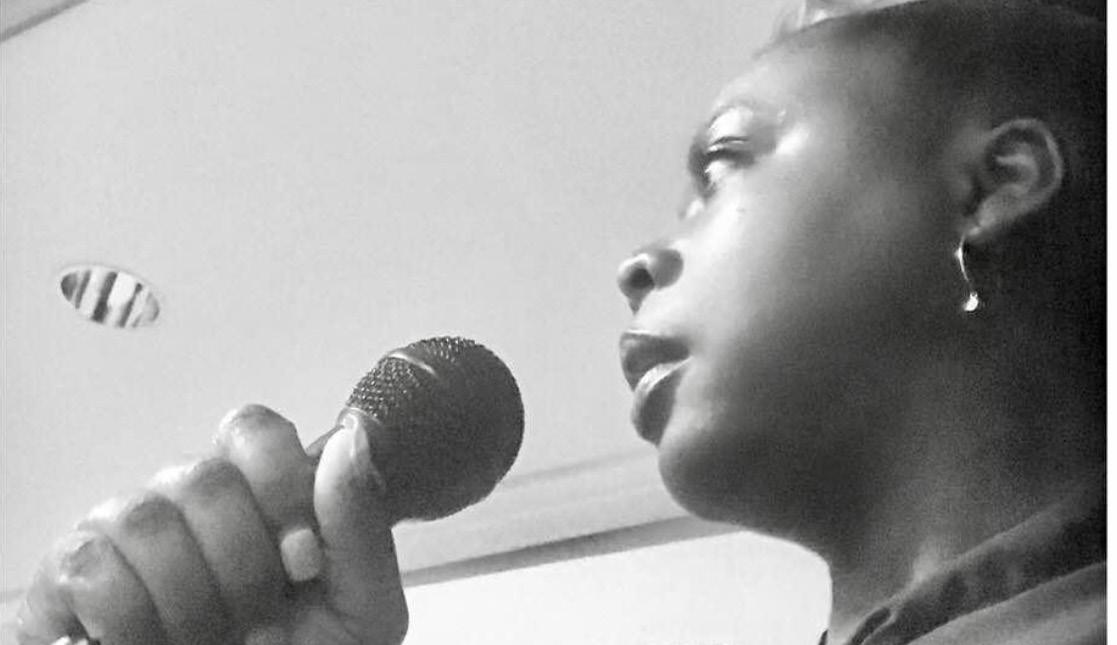


31Grief in Children: What We Need To Know 39The Importance Of Telling Your Story with Tevis Simon 33Healing With Anxiety 41Supporting Children With ADHD 34Thank Goodness I Am Female with Dr. Kimberly Abney 44My Experience With Adult Bullying 37Interview With The Junior Melanin Collective 37 Interview With The Junior Melanin Collective 34 Thank Goodness I Am Female with Dr. Kimberly Abney27 The One Prescription You Can Fill Without a Pharmacy 39 The Importance Of Telling Your Story with Tevis Simon 41 Supporting Children With ADHD 44 My Experience With Adult Bullying
FOUNDER
Is it me or did we get to November a little too fast? I feel like it was just yesterday I created my comments for the August issue, and here we are. The end of the year gives you the opportunity to reflect and close the year out with the goals you created at the top of the year. I hope you use this time to embrace all the things you have checked off your list. If there are some things you still have not yet completed know that it is okay…be kind to yourself. So much has happened this year, I have grown as a person, entrepreneur, mother, sister and friend. At Helpful Living Magazine we gained more readers, partnered with different clinics and went to a few expos to connect and share what we do and who we are as a company. My newborn traveled twice on the airplane and it was a great experience. He is now an experienced traveler! My kiddos will get their passports and my 4-year-old will get to experience taking his picture as we prepare to travel overseas next year. The last few months have been challenging as my family went through a battle of losses. One thing I must say is mental health is real and I cannot say that enough. Grief is a journey on its own and we have to remember to love on the people that love us and be kind to those we do not know. Life is hard, and you never know what a smile or conversation can do for someone mentally and emotionally. I encourage you to spread peace, love and joy as often as you can.
Holidays are challenging for a lot of people, and for some, the older we get the harder holidays are for us. It’s a time to celebrate family and friends and create memories. However, it is also a time to think about the ones we lost along the way. As you sit at the dinner table or while you are cooking or even wrapping presents, know that you are not alone when it comes to emotional sadness. If times become
you navigate the feelings you are experiencing and I pray that journey has a good outcome for you.
In this issue you will read about relationships, coaching and counseling, understanding the importance of a Mental Health Day, activities to embrace your mental health and so much more. Our goal is to continue to provide resources for you to engage in and/or to share with a friend.
One of the most challenging things I hear is people mentioning there are not enough resources. We want to end that barrier by providing as many resources as possible. Be sure to use the pages to take notes and engage in your own healing. We may not have ALL the answers, however we want to be the tool that guides you to the healing that you need.
Lastly, if you want to share your story or have an idea for our next magazine issue I encourage you to reach out to us and pitch your idea. Featuring organizations and individuals is an honor and we would love to display your work!

Jamie Rockymore-Bess
LETTER FROM THE
Helpful Living Magazine displays articles and stories from the perspectives of the writer. They are used for advice and not for the primary use of treatment. Stock photos are from Belle Imagery Portraits, Canva, Freepik.com Pixabay. Shutterstock, & Unsplash. Logo created by Passion Designzz
Founder, Helpful Living Magazine
6 HELPFUL LIVING MAGAZINE
The Artist On The Cover
In the year 2020, the world experienced a pandemic the likes of which the living had never seen before. Here in The United States, we all had a front row seat to some of the most gruesome scenes of social and political injustice. In the midst of that, we searched for normal until we found a new one. Early this summer, within the confines of this ‘new’ normal, I was grieving over the loss of people of color shopping for groceries. A few days later, I wiped tears away over school children that I’ve never met, dying in their classrooms in Texas. Two weeks ago, I went back to work at a school. And last week, I heard about a long awaited answer to student loan forgiveness that fell a little flat.
Today, I’m listening to a live stream on whether social media algorithms are racist. It was largely inspired by a video calling out the giant of video-sharing platforms on the web today. It seems the world has a neverending supply of trauma just waiting around every corner. I once read that good mental health is being able to cope with normal day-to-day stressors. That is, it is being able to be productive in spite of those stressors. There’s just one issue with that definition...One weak link that negates its use for us today. That is, the word ‘normal’. If our normal is new, then that means it has somehow changed. And, if it has changed, does that not mean that what good mental health looks like must change too? Amidst greater stressors, would we not need
greater mental health? And, in a community where seeking help for one’s mental state has been considered taboo, how do we being to understand that our new normal demands help? How do we learn that we must find new and more effective ways to ‘cope’ than just keeping on?
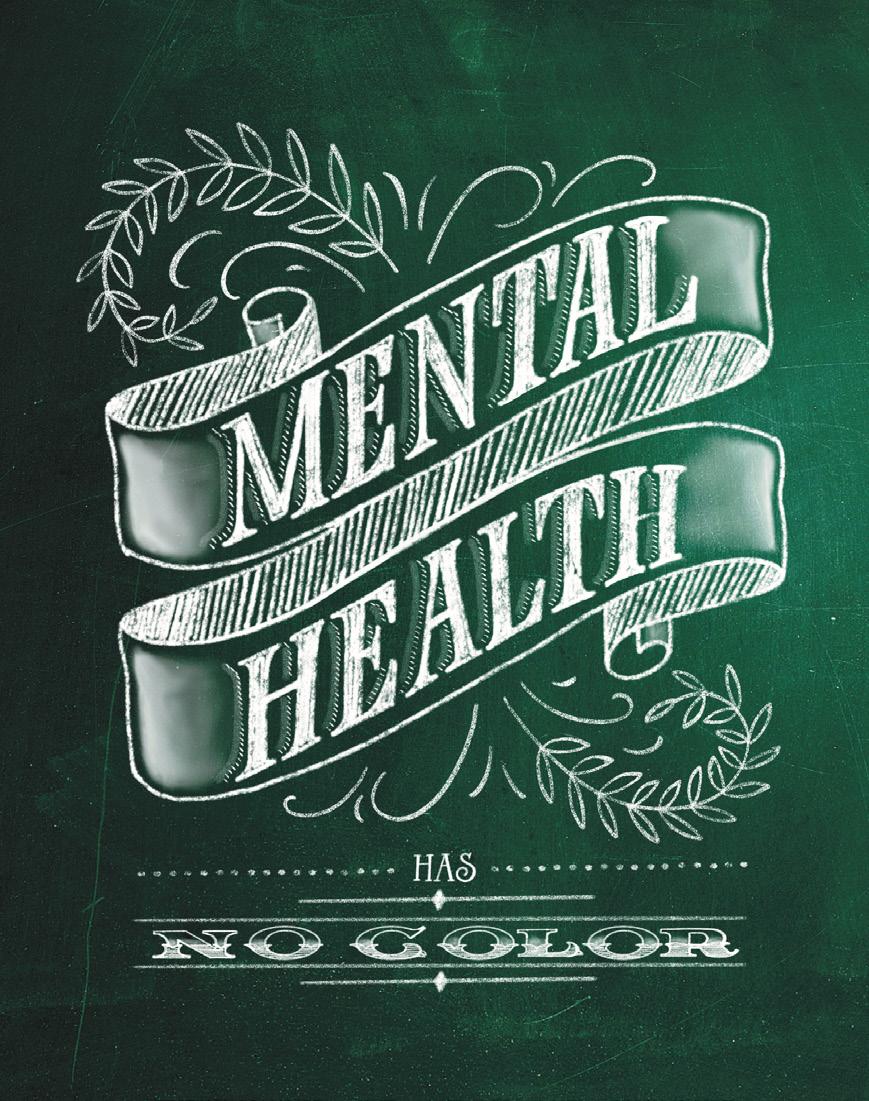
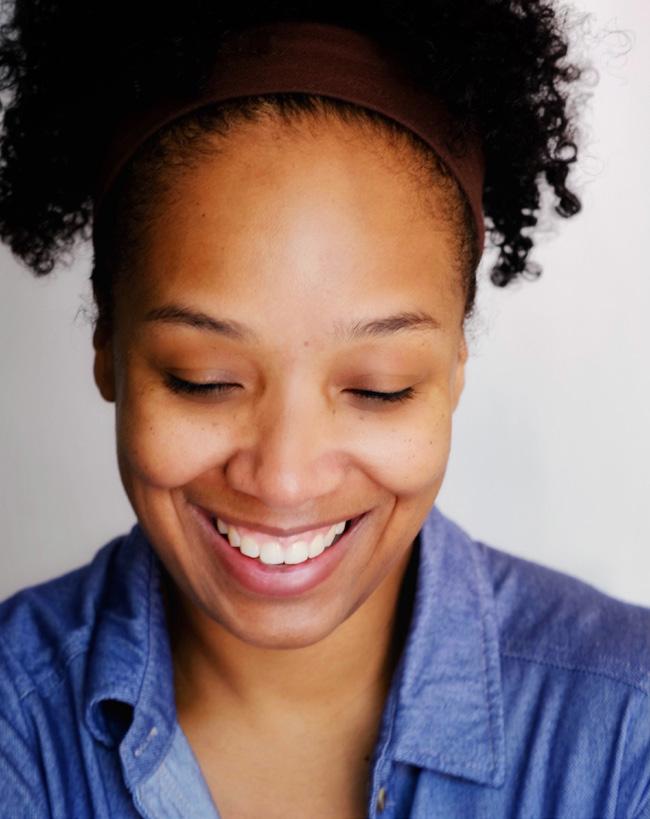
Coping in Black and Brown Communities Mental health has no color. It respects no one....and for black and brown communities, it leaves no stone unturned. As a community that has experienced more collective trauma than most, it is imperative for our survival that we begin to take our mental health more seriously. ‘Cope’ is the
allow us to weather or adjust to circumstances. Coping strategies may involve a number of activities such as problem-solving, exercising, seeking help...or even learning. That last one was it for me. I typically like to fix the things that stress me out. But, during a time when I couldn’t solve things, I found that one of my most useful coping tools was learning a new craft. Giving my mind a creative project to work out illuminated an effective strategy that I hadn’t used enough for stress before. As an arts educator, it’s nothing new to me to promote creativity as a way to cope with stress. It comes with the job. But, as a survivor of the past three years, I can confidently say that paving a safe way to original, imaginative and creative thought has protective factors. Black and brown people have a history of being talented and creative.
Our history is riddled with it. Whether by singing spirituals, creating musical genres, dance, etc., our way of coping always began with our creativity. Our survival was rooted in it. Perhaps our way of coping to new stressors doesn’t have to be so new after all. Maybe we just have to remember ourselves. Creativity As An Escape Route to Mental Health During the pandemic, my daughter started experiencing health issues. Eventually, she required a nurse to travel to school with her and monitor her when I was working. Most of her nurses have usually just spent their time with my daughter writing in their notes about what they monitor all day. Then, they go home. But her new nurse is different. One day, I saw her crocheting while monitoring my daughter. I thought, “What a wonderful way for her to de-stress during the job.” A fiber person myself, I offered to teach her to spin her yarn for her projects. She picked it up
happily! Later, I found that of all the nurses my daughter has had, this particular nurse has the most stressful set of circumstances at home-even more than my own. Yet, she is also the most pleasant of all the nurses I’ve experienced and the most productive. Her way of coping proves that as great as the level of stress and trauma is, creativity is a powerful means to combat it. I believe that we must get back to our roots. Much like an underground railroad, our creativity can build new, trauma-free pathways for our thoughts to travel. In the face of greater stressors, we can build an escape route to greater mental health and productivity.
About Stacey Johnson
Harden:
Stacey Johnson Harden is an artist, wife, mother, art teacher, and part-time freelance artist located in Bear,
a concentration in painting at the Delaware College of Art & Design (AFA), Maryland Institute College of Art (BFA), and the University of Delaware (MFA). In 2018, she became an art teacher at a local school in Delaware where she continues to educate herself and young people, integrating visual art with a love of learning. Stacey is available for freelance lettering art for personalized gifts and home decor as well as live lettering and calligraphy for events and promotions. Visit her on any of these social media platforms:
http://www.staceyscribbling.com IG:@staceyscribbling FB:staceyscribbling. 7HELPFUL LIVING MAGAZINE
5 Reasons We Should Talk About Mental Health
 By By Eletta L. Cameron, LSCW, ACSW
By By Eletta L. Cameron, LSCW, ACSW
William Shakespeare once said, “The Eyes are the window to your soul.” Our eyes narrate simultaneously in part, the story that our minds are thinking and demonstrating how well we are feeling. The conversation about mental health is often shrouded in secrecy, which in turn, is interpreted as shame for those directly and indirectly impacted by mental illness or mental health issues. Family members and
when wanting and needing to broach the topic of mental health and/or mental illness. However, one way to clarify and demystify the concept of mental health versus mental illness is to understand there is a distinct difference between the two terms. Most often individuals do not delineate the two, using them interchangeably, resulting in miscommunication and misunderstanding of these two terms.
Understanding the difference in the two terms is significant in knowing how to approach and discuss mental health with friends, family and in general, public conversations. This article will help to clarify the difference and provide useful ways in which to approach the conversation about mental health wellness or mental illness in a helpful and non-threatening manner. In addition, let’s explore and clarify the two
about mental health.
What is Mental Health?
Simply defined, mental health is how one handles stressors in their daily lives. Everyone has mental health, just as they do physical health; and because of that very reason mental health should be equally attended to just as physical health is. Mental health is fluid and can be impacted by what occurs throughout the day, month or year.
For example, imagine waking up in the morning, looking outside and seeing the beautiful sunrise. The cool breeze gently blows the smell of cherry blossoms through
spring day. You think to yourself, it’s going
to be a beautiful day and you feel happy and encouraged. However, you step outside to enter your car to go to work and notice someone has hit your car. You think, ‘Who hit my car and didn’t even leave a note?’ Then you begin to consider the cost of repairs. Notice how you are thinking and feeling at this moment - annoyed, anxious, frustrated. In a matter of minutes your stress level has increased and your feelings are heightened.
You may react by screaming, slamming your car door, calling a spouse or friend and venting. You’re not mentally ill, but your mental health, at the moment, is temporarily impacted. After a few minutes, you are able to process your thoughts, feelings and what you need to do next. You return to a balanced emotional space. You may remain slightly annoyed, yet it doesn’t keep you from carrying on with your daily responsibilities. Eventually, you decide what you need to do to get the car repaired and your response becomes aligned to the needs of the situation.
What is Mental Illness?
Mental illness is a range of conditions/ disorders; and while mental illness does impact one’s mental health (how one thinks, feels, responds and reacts) it is not mental health. Mental illness has to be diagnosed by a professional and/or licensed mental health clinician or a psychiatrist (doctor
specializing in mental health disorders) or health care providers. Mental illness inhibits one from functioning (thinking, feeling, responding/reacting) in a healthy way.

Consider the previous scenario, someone experiencing mental illness may become so overwhelmed by this situation that they call off, scream and yell, and intensely worry about what if this or that happens. Or even
This reaction may seem extreme to those who have good mental health, but for those who do not, this response could lead to severe depression, anxiety or even paranoia. Thoughts such as, ‘nothing ever goes right for me’ or ‘someone is out to get me’ may begin to take over one’s thought process, becoming so intense that their ability to function at home, work or leisure is
INFORMATION 8 HELPFUL LIVING MAGAZINE
compromised and may possibly result in needing to see a professional.
It is important to keep in mind that mental illness is also on a continuum. There are many people diagnosed with a mental illness and function well because they have acknowledged, identified, sought and received treatment. Treatment is not always about taking prescribed medication. Treatment can be counseling (therapy), medication or both. The mode of treatment is dependent on the intensity and frequency and overall functioning of the person and should be directly and honestly discussed with the person seeking services. Now let’s delve into our mental health and wellness understanding.
5 Reasons to discuss mental health
1. Normalization
Everyone possesses mental health. How well it’s cared for is the issue requiring more conversation and attention. Understanding that mental health is not a condition which can be turned on and off at will, and instead, it is a constant state of being. It is important
to know how to appropriately care for our mental health. How we think, feel and react or respond is all mental health. We need to nurture normalization.
2. Our mental wellness impacts our physical wellness -- it’s all connected
There is an unspoken sentiment that mental health and physical health exists independently of one another; however if a person is unable to effectively navigate daily life then they are most likely going to have a
being. The thought, feeling and response process is responsible for one’s ability to actively participate in their own self-care and self-advocacy.

3. Talking is therapeutic
People need an outlet. In this context therapeutic is meant as restorative and providing reprieve; and talking can assist in this. How often do thoughts and feelings swirl around in your mind causing emotional despair; and the moment you discuss it, the intensity is mitigated? Talking helps to put things in perspective. Prolonged emotional distress depletes one’s ability to think clearly, creatively and objectively. Therapy/counseling is often entered when individuals believe there are deep-rooted issues requiring a methodical series of conversations allowing individuals to confidentially express and explore situations influencing or prohibiting their ability to move through an experience. Therapy helps individuals make connections to experiences that may help them become emotionally “unstuck”.
4. You are not alone
The concept of mental health has been constructed in society to be one of loneliness and shamefulness. Whispers of contempt are made about mental health conditions and the people living with those conditions. Unfortunately, if the approach to mental health conditions is going to be perceived in such a manner changing the narrative will always be challenging. Moreover, those who suffer the most are those who most likely have limited access to mental health care and already have bought into the misconception that addressing mental health issues is negative. I repeat, you are not alone!
5. Dismantle the mystery of mental health and mental illness
Discussions offer understanding and new perspectives. Mental health is as unique as our fingerprints and various experiences
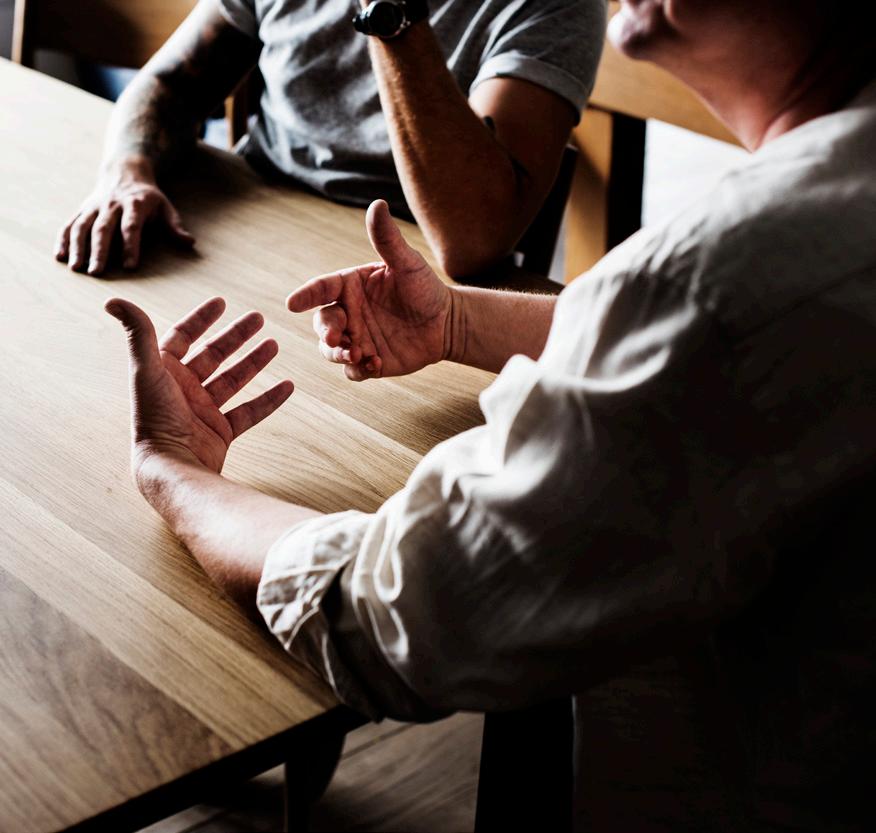
influence an individual’s mental health. The important detail is acknowledging the fact mental health is a component of every living person. There is no way of circumventing it. The creation of mystery around mental health issues or mental illness is no more mysterious than having a condition such as high blood pressure or diabetes; the better and more effectively it is treated the better and healthier a person can live. Mental health issues should not be entrenched in fear or shame. Imagine if people believed they were at total liberty to talk about, seek and, when necessary, have their mental health concerns treated. There is no doubt that awareness of mental health and mental
yet there is still much progress to be made.
Talking about mental health can serve as a vehicle by which individuals, families, communities and society experience the synergy of healing. Let’s give one another permission to talk about mental health issues and or concerns. We need to be providing a platform undergirded by the freedom to honestly express when we are not ok; to empathize and to connect with the very thing at the core of it all. The human condition.
About Eletta L. Cameron:
Eletta L. Cameron, LCSW, ACSW is a licensed clinical social worker and owner of Cameron’s Counseling & Consulting Services, LLC. She is a highly sought-after clinician, keynote speaker and law enforcement officer trainer because of her unique approach to the topic of mental health among Law Enforcement and other firstresponder professionals. Additionally, she provides training for universities, organizations and psychiatric practices.
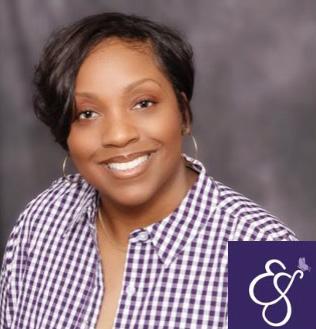
9HELPFUL LIVING MAGAZINE
A Letter To My Father
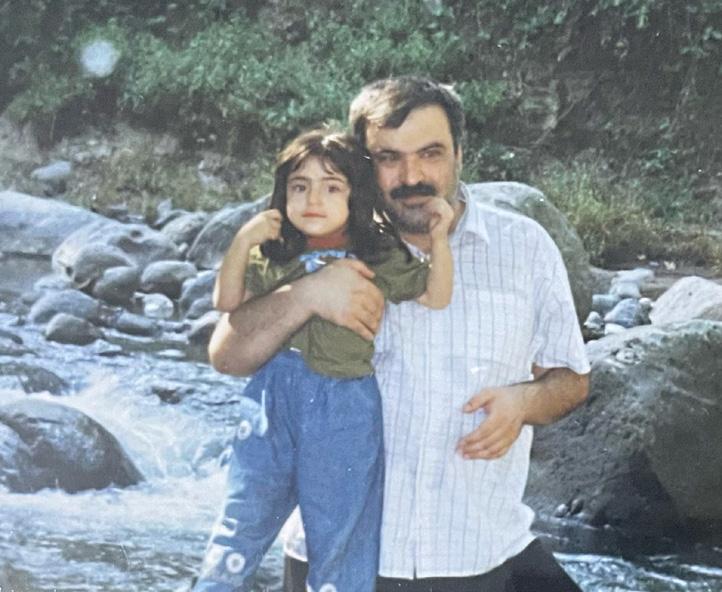
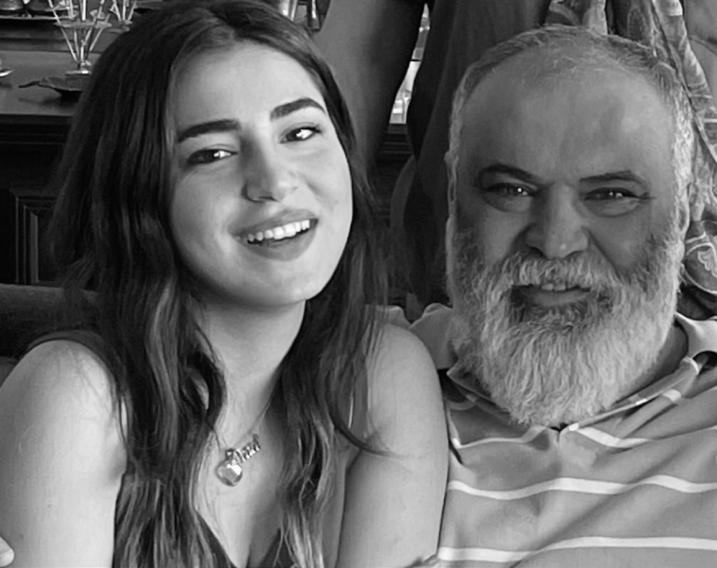
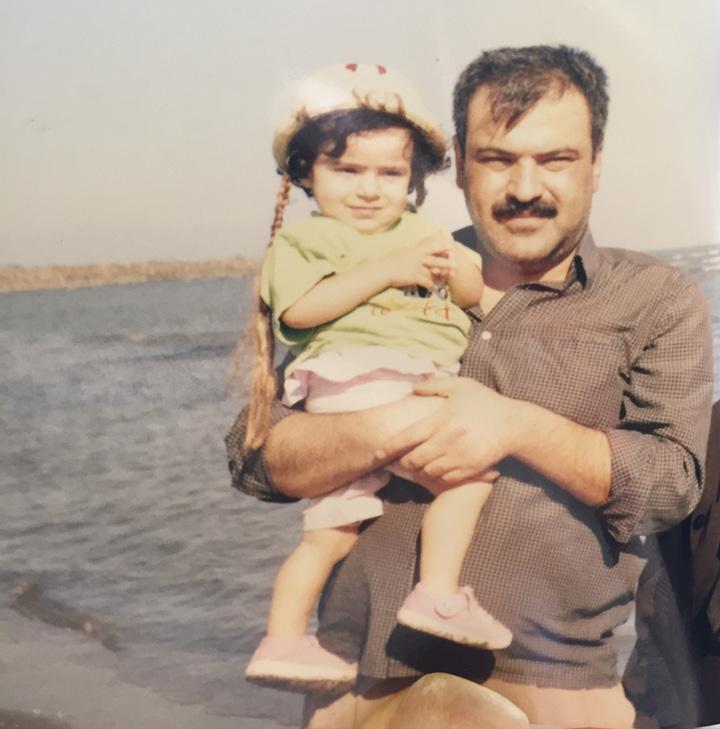 By Sayna Behkar
By Sayna Behkar

Ihave tried to encourage everyone as much as I can to do their best, but sometimes life hits so differently that reading those sentences doesn’t make sense anymore. Sometimes, you don’t feel those words and you can’t even find any reason to. I got all those feelings when I lost my father, and the whole world changed in my eyes. There was nothing left to say. I felt like I had lost everything and that emptiness in the deepest part of my heart was unexplainable. That time I felt like nothing. I always believed in hope, happiness, a future, a successful life, and so on. But at that moment, nothing was actually important. I was always so stressed about life; making my grades the best, passing all my exams in the perfect way, feeling happy, and always doing something useful. But with just one call, everything turned to dust at that moment.
I was thinking so much every day and night. Maybe it was too soon for this experience; maybe I wasn’t ready for it, but all I knew was that I was getting into something that would be extremely difficult to handle. At my dental school, I couldn’t take 4 of my final exams, which were so dramatically important for me, just because of the call that I got, and I had to go back to my hometown after that. But to be honest, life tested me with a more painful exam without asking me to get prepared for it. This is exactly the rule of this journey, isn’t it?
Now that it’s almost two months since that day, I can say that I’m healing myself day by
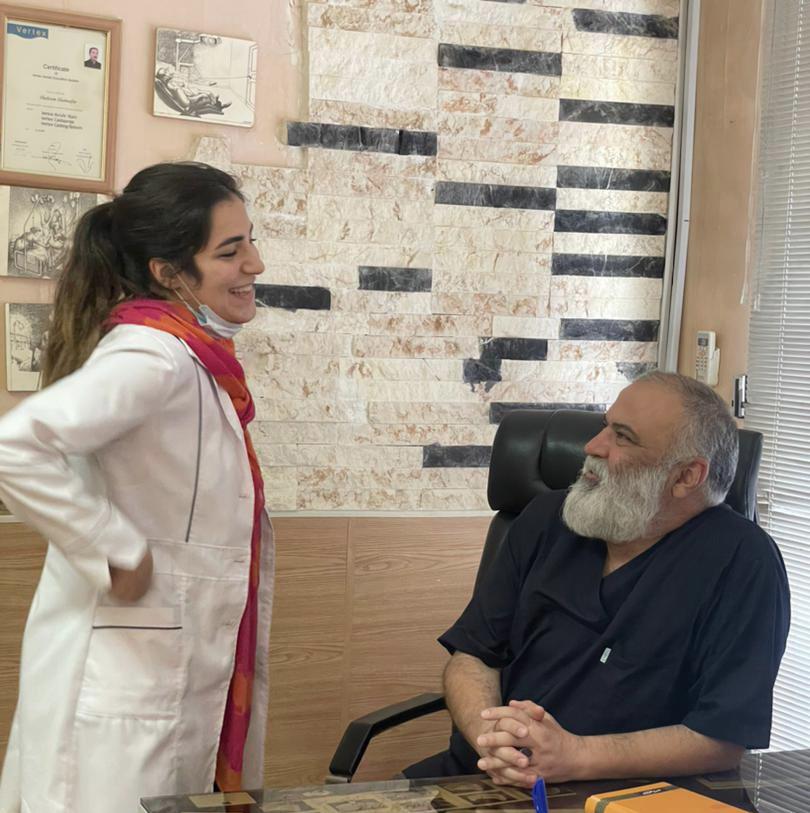
time relieve my pain. I’m becoming more powerful and independent. There are those who will always wait to see your failure but never give them that satisfaction. Everything will pass in life, but your decisions will always be with you. I may be tired. I may need some time to rehabilitate
My last little note to my father is, “I promise you will proudly watch your girl doing her best.”
About Sayna Behkar:
People ask a lot of questions about whether I could get used to it or get over it, but I don’t think that it’s something that will pass easily. As life comes upon you and you experience the pain, a new door opens inside you, and the most important thing is to get used to that new version of yourself. Your pain does not go away, or that inside because that part of you was the most precious one. But it’s no wonder you feel behind on everything, and the thing is that you’re just behind a new starting line with a new perspective. It was exactly the point that I had to understand, and I needed time to do so. All those feelings come when you are destroyed from inside, but the truth is that you are born again from your ashes. New you, new beginnings…
and laugh louder.
I don’t know what will happen next, but I can still say that no matter what happens and how broken you are, it’s up to you to stand up again, believe in yourself and never allow
Sayna Behkar grew up in a small family in the city of Tabriz in Iran. She is a 21 years old dental student in Ankara University. Working as a painter worldwide, she mostly paints medical, dental, and anatomical works. Although her mother is a painter, too, she learned to paint on her own and started her painting business while in lockdown during COVID-19 pandemic. From an early age, piano became another true passion for her. She loves to shed light on the impact of art on our mental health. To connect with Sayna you can follow her on Instagram: @sayna.r.t
PERSONAL STORY
10 HELPFUL LIVING MAGAZINE
Adulting with Our Parents
with Carrie Holland-Lee
Carrie Holland-Lee is licensed in Maryland and Virginia with 11 years of professional work experience. She has experience in helping clients with stress and anxiety, relationship issues, trauma, abuse, motivation, selfesteem, confidence, and many more. She is trained in Eye Movement Desensitization Reprocessing EMDR to treat trauma and continues her education by taking continuing education credits towards her licensure. She also completes these courses to stay on top of techniques and strategies to best serve her clients. She believes that you are the expert of your story and you have many strengths that will assist you in overcoming things that challenge you.
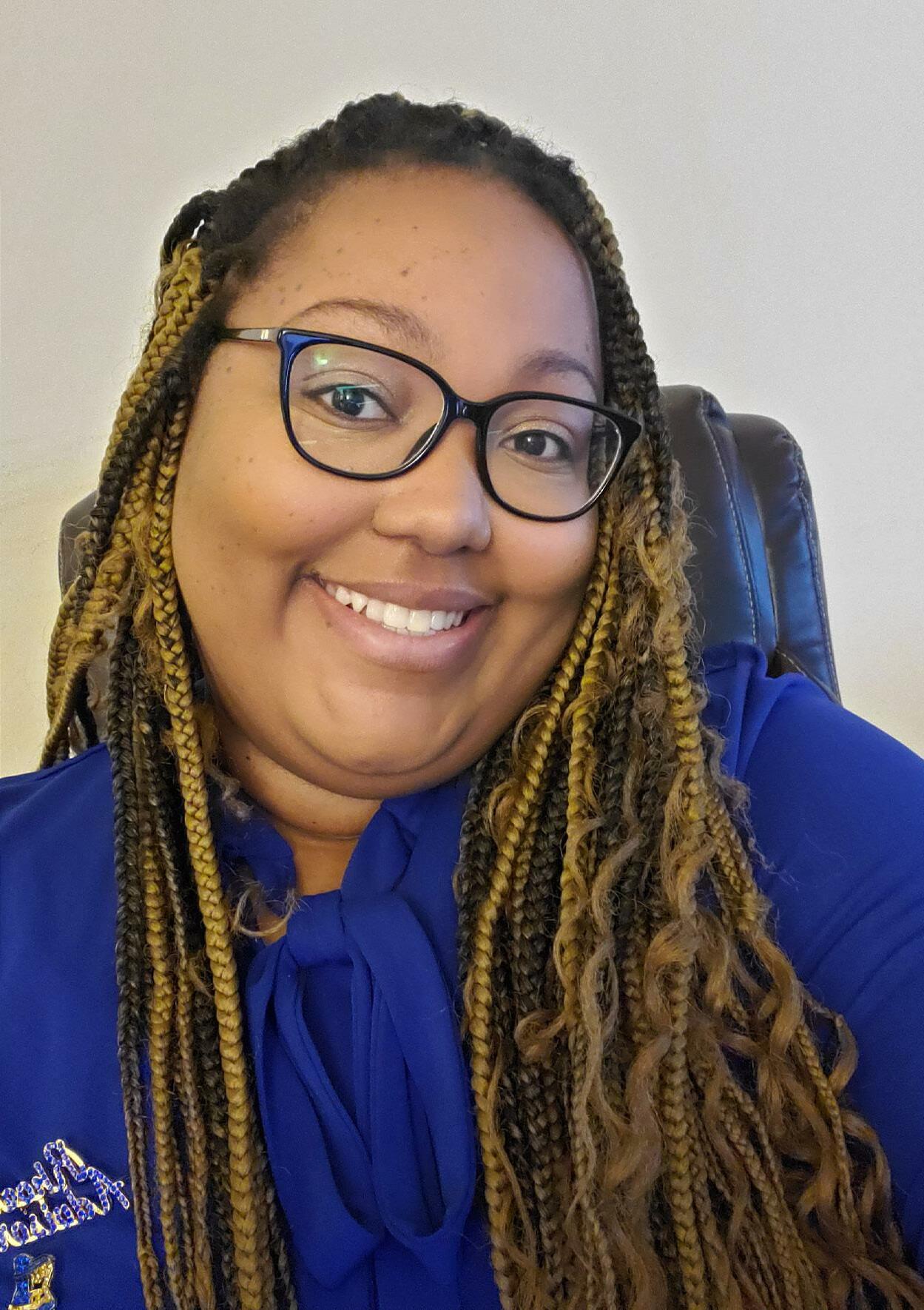
HL: What do healthy parent and young adult relationships mean to you?
CHL: Parent and young adult relationships can be somewhat hard to navigate as it is a different power dynamic than before. To me this means both parent and child turned young adults must learn ways to communicate and establish new boundaries. By young adult I mean anyone between the age of 18 and 30 in this particular conversation.
HL: How common is it for young adults to have conflicting parental relationships? Is this common, and if so why?
CHL: It is very common for there to be conflict because it is an adjustment phase. The parent is learning to let go of some control and trust that they have done what is needed to give their child the tools to flourish as an adult. But many times especially for those under 25, the child is still living at home and often on their parents insurance and other household bills. This situation in and of itself can be confusing because while legally you are an adult and have to do certain things on your own, you still are a dependent if you don’t work or live on your own. If that is the case some parents can
INTERVIEW
11HELPFUL LIVING MAGAZINE
have a hard time seeing you as an independent person and boundaries that the child may try to set often get crossed or ignored. In some cases young adults may live a very different lifestyle than their parents from chosen religion, politics, whether they drink alcohol or not, whether they party or not and all that can impact the relationship.
HL: How can young adult parents mend relationships with their parents?
CHL: Family therapy can be very helpful if communication is dysfunctional at home and a third party is needed to get to the root of the issue. Oftentimes I hear clients, mostly mothers, say that their identity has been being a mother and taking care of their now grown child. It can be hard to let that go and work on taking a step back to respect their choices. It can also be hard for the adult child to be compassionate to this fact and to take a step back and try and compromise respectfully on how to move forward. Both parties have to establish new
boundaries and levels of respect for each other. Parents also have to understand that the brain isn’t fully developed until 25 so your young adult children are going to make mistakes and try things that you may not agree with but it is their mistakes to make in order to learn and grow. Allow for your children to come to you and provide a safe space where they can share their true feelings without judgment and without being attacked because they aren’t who you may want them to be. We all just want to be heard, understood, loved and supported.
to have their parents in their life due to relocating to a different state. What are ways adults can encourage their parents to come around more?
CHL: Make it inviting and encourage communication throughout the year. Don’t just wait until the holidays to contact your parents. Maintaining any relationship requires effort on both parts. Make your home comfortable and be intentional about stating that you want them there if that is your desire.
HL: Do you believe there can be jealousy between young adults and their parents? Is this common?
CHL: I don’t see many clients who appear jealous of their kids but it does happen. I think most parents want their kids to grow up to do better than them, in some cases that can be a source of conflict if it doesn’t happen. That’s not to say there aren’t cases of jealousy as we all have the potential to be jealous but I don’t see that as the primary problem or source of conflict.
HL: How should young adults deal with a parent who does not make sacrifices or want to have a relationship?
CHL: Work on healing for yourself. You cannot force a relationship with anyone including your parents. It is a hard job to be a parent and sometimes it presents challenges that are not the child’s fault and that the parent may not have even anticipated. Try to get to a place of
understanding and forgiveness for your own peace of mind. We are all entitled to our boundaries, beliefs and feelings and sometimes you have to just make your peace with a situation and move forward.
Mental Note: I will close with this. Mental health at any stage of life is important. From birth to end of life it is crucial that we all pay attention to how we are feeling inside and how our children are feeling. Many families live with trauma and brush it off as something minor only to have it grow into a crisis later in life. Please seek help from a professional even if you feel your issue is small. If you struggle to get through it you don’t have to suffer in silence.
About Carrie HollandLee:
Carrie Holland-Lee graduated from Towson University for an undergraduate and Liberty University for a graduate school. She is a member of Sigma Gamma Rho Inc. and currently supports and advises our Rhoer club which mentors young ladies in Baltimore County. She is also a married mom to 4 and one of which is a young adult.
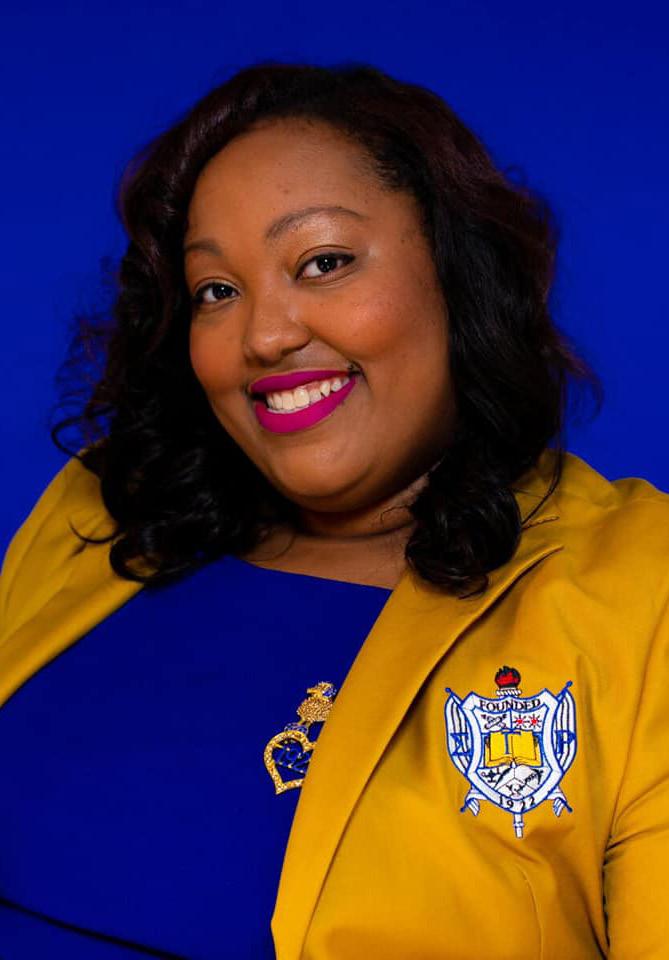
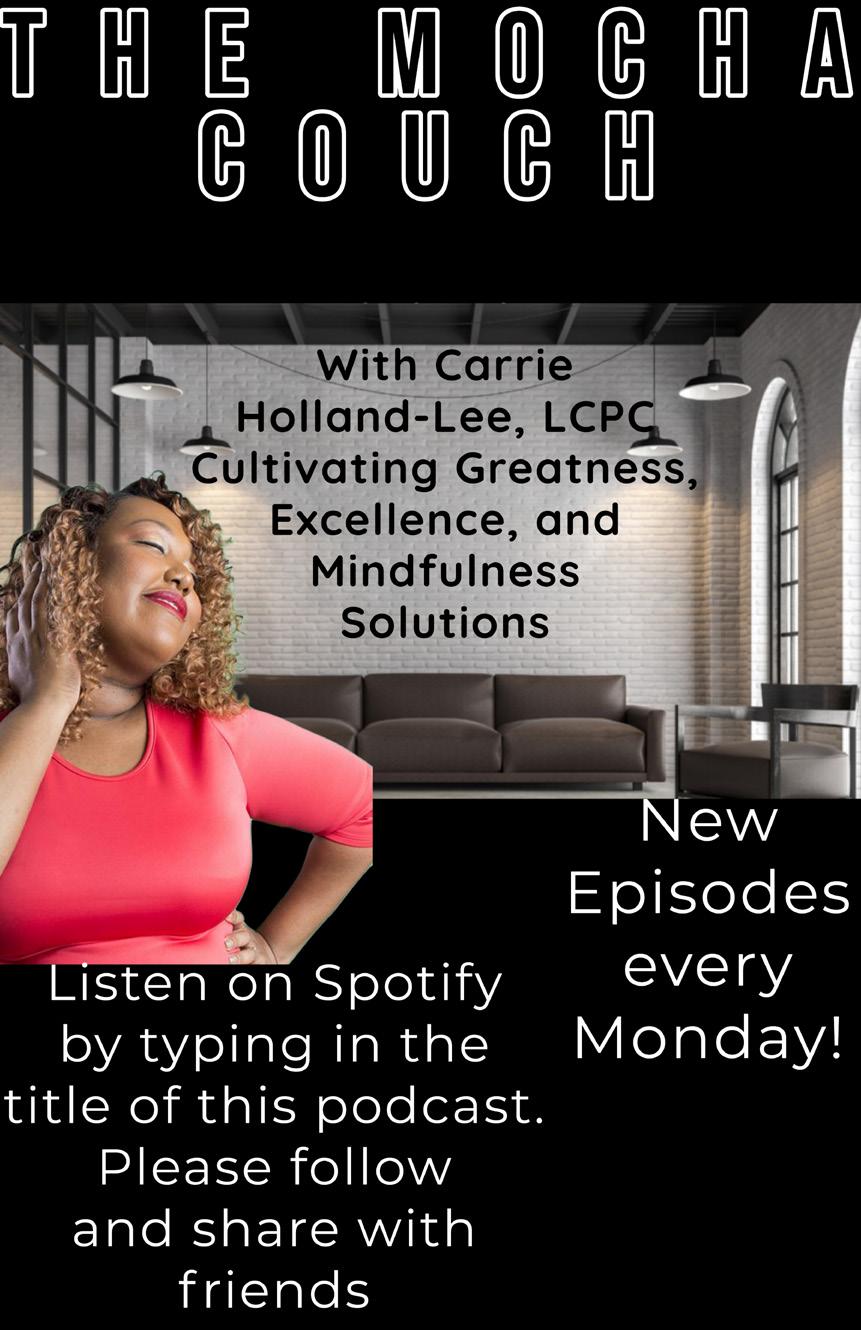
12 HELPFUL LIVING MAGAZINE
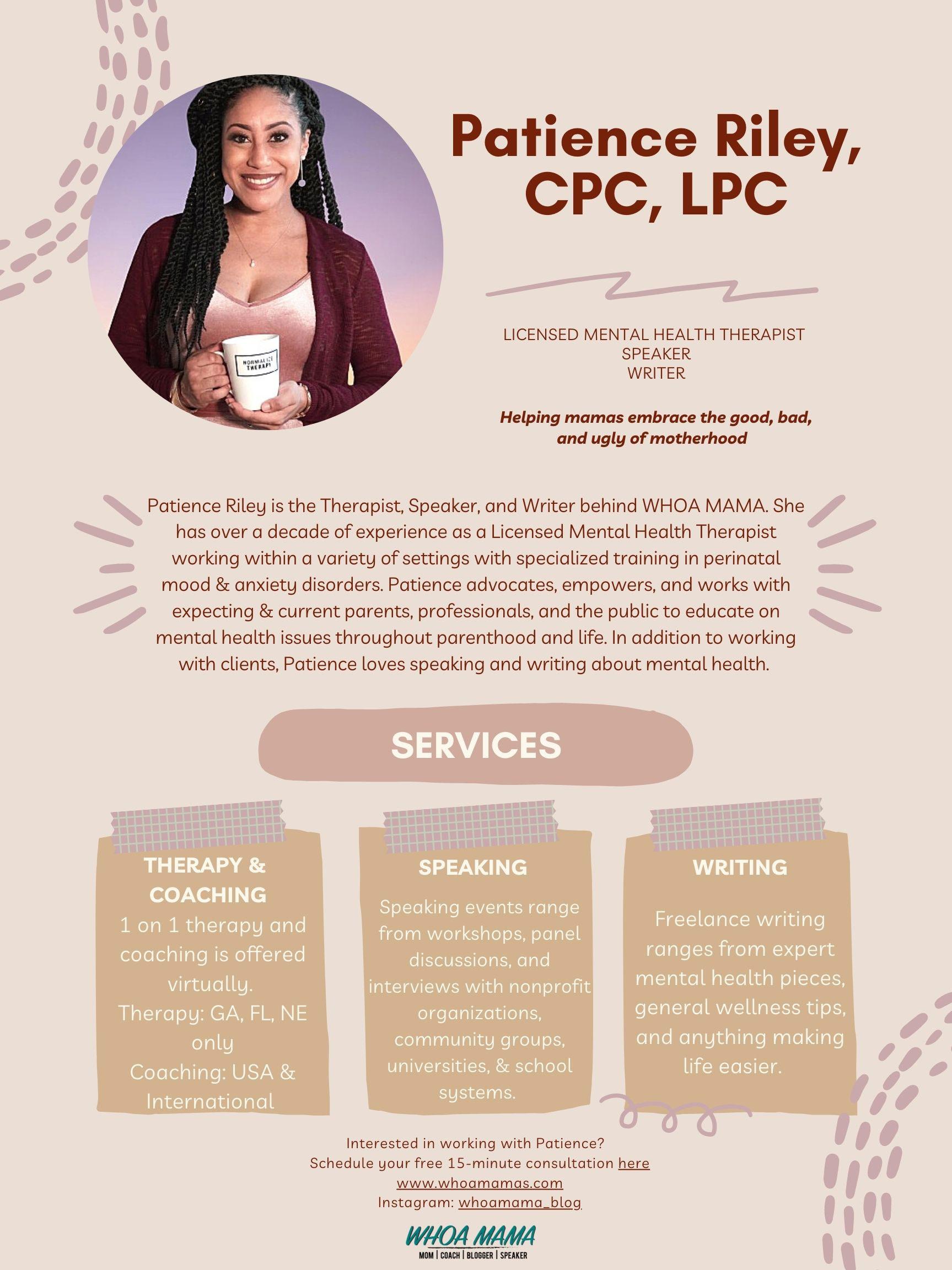
Balance and Boundaries in the Holiday Season
By Kelly Anderson, PhD
It often feels as though the time between October and January flies by and before you know it, a new year has begun. The holiday season is notoriously busy, even if you’re not one to get into the holiday season spirit, pressure during these months can come at you from all sides. Those with children face multiple days (or weeks!) where kids are home from school. Workplaces have forced potlucks and gift exchanges. Many feel pressured to work more or even get an additional source of income to be able to afford extras. Not to mention togetherness and gathering with family always seems to be the theme despite your feelings toward forced family members. It’s easy to see how quickly the holiday season can shift from a place of joy
hard to handle emotions.
Having negative emotions during the holidays, for any number of reasons, is not out of the ordinary. If you’re like many people, you might even look forward to the holidays with a sense of dread. While marketing tools and social media may lead you to believe everyone is loving this time of year, for many it’s a source of stress and a reminder of losses. An important piece to keeping yourself stable through holiday season stress is making sure you are clear on your priorities, or values. Proactively thinking through what’s most valuable to you can aid you in putting time and effort into areas that are likely to bring you the most joy. Making choices consistent with your values can help you to better balance demands placed on you during these busy months.
Once you clarify your holiday values, it becomes easier to set boundaries. You may
others around the holidays, but also need time alone to recharge. By knowing these are both important aspects in keeping stress manageable, you can choose how

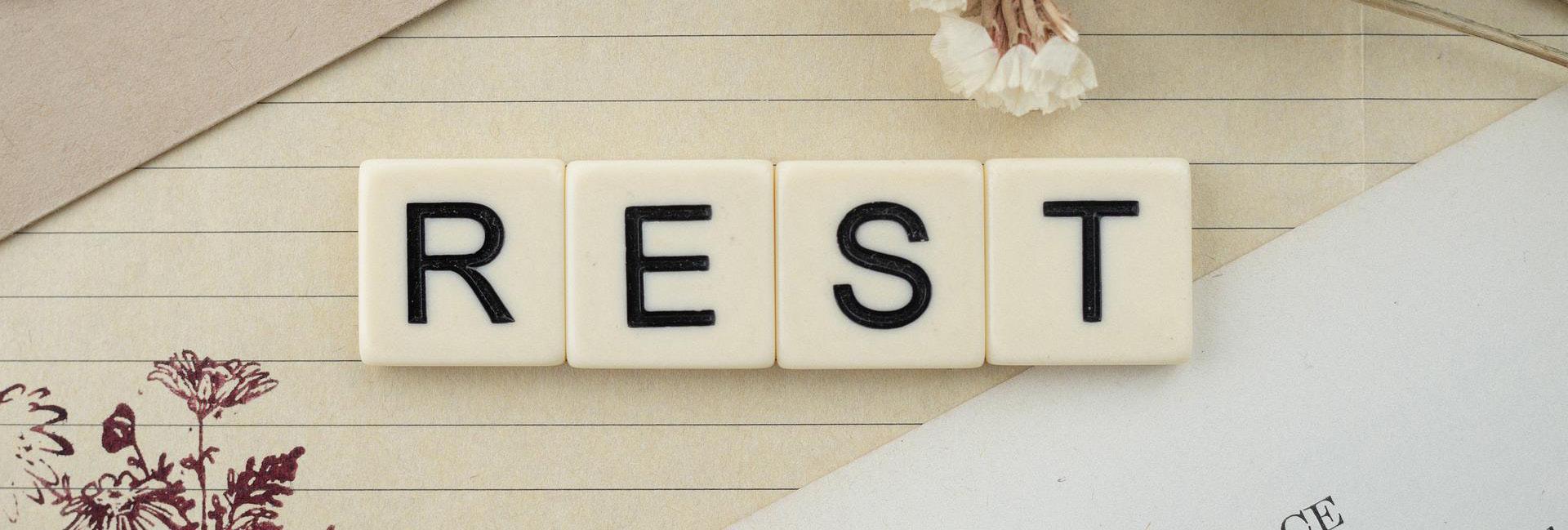
much of each you want and need. If downtime and relaxation is at the top of your priority list, this may mean saying no to invitations to parties that are emotionally and physically exhausting or interfere with your sleep schedule. Perhaps saving money or spending less so you can take some time off work is your top value this season. This could translate into you opting out of traveling for the holidays (or asking others to travel to you) in lieu of a virtual gathering or planning travel to see loved ones at a less expensive time of year.
Turning down invitations, deciding not to travel, opting out of expensive events, or prioritizing time for yourself all fall under boundary setting. Boundary setting doesn’t need to come in the form of lengthy conversations or explanations. A graceful declining of an invitation (e.g., “I’m sorry I can’t make it to the New Year’s Day Brunch, I’m spending that time focusing on relaxation and recovery that day”) works as well as something more succinct (e.g., “No thank you”). You may also find that it becomes important to set boundaries for yourself as well. It’s all too easy to stretch ourselves and over do things. For example, if you’re holiday shopping, you may want to limit yourself to one or two stores and be mindful of your budget before entering the store to keep from expanding yourself
Finding and keeping your balance during busy times is best done by not only setting and maintaining boundaries, but by also planning to care for yourself in advance. Be
couple of months to recharge and relax. It is also advisable to set at least one day per week where you’re focused on those things that feel the most nourishing to your body and mind to better handle the busier days.
When you start to find yourself feeling overwhelmed, stressed, or anxious, using meditation or breathing exercises can help in the moment. Being prepared can really
help here! There is no shortage of mindfulness apps that can be downloaded for free, YouTube videos that can teach you breathing for relaxation, or even podcasts that can help guide you through meditation.
of the holiday season to keep on hand when stress and tension runs high. These can be
practiced in the bathroom at an overwhelming family get together, or before bed to help unwind after an exciting party. Being proactive and having resources in advance minimizes the amount of problem solving you must use under pressure. In other words, you’re far more likely to use one of these tools at the moment if you’re already prepared.
About Kelly Anderson:
Kelly Anderson, PhD is the owner of the group practice Wellness Therapy of San Diego. The group provides psychother apy, medication management, and psy chological assessment services to adults and children in California and via telehealth to clients in Arizona and Col orado. If you’re looking for resources on managing stress, learning mindfulness, or relaxation, you can visit our Resourc es and Blog pages at www.Wellness TherapySD.com
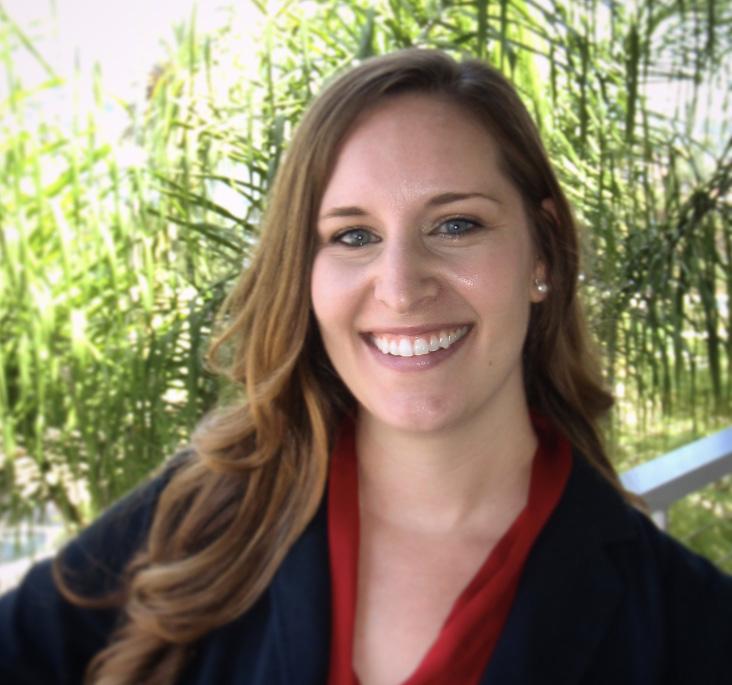
INFORMATION
14 HELPFUL LIVING MAGAZINE
X L H Q K E H H L V E G J Y P Y X I V A W D O O H M R R K Z I X I W Q O W U X S Z O I R B L W N H M R Q N T A R U S I U V P E I I G E T G I S P A F O U H L O D U U H X E T S G A H R H X L L B O G I Y Z A B S E M A O A M N Y R N R H A R R G K V V G E Y A P V I L O A G M E I O S W D H Y A J L C O C F J Z T W N V E U H R F A J G N E Y I U V W L E T L E L E C V U L O K N F P E E G K H C H L Y B Z Z M F J S Y U I O T U V
X G
W E L L N E S S F
Y W S D 1. healing 2. value 3. help 4. therapy 5. honesty 6. grow 7. love 8. wellness 9. gratitude 10. groups 11. selfcare 12. boundaries Word Bank Embrace Your Wellness Words can be found in any direction (including diagonals) and can overlap each other. Use the word bank below.


















 By By Eletta L. Cameron, LSCW, ACSW
By By Eletta L. Cameron, LSCW, ACSW






 By Sayna Behkar
By Sayna Behkar








